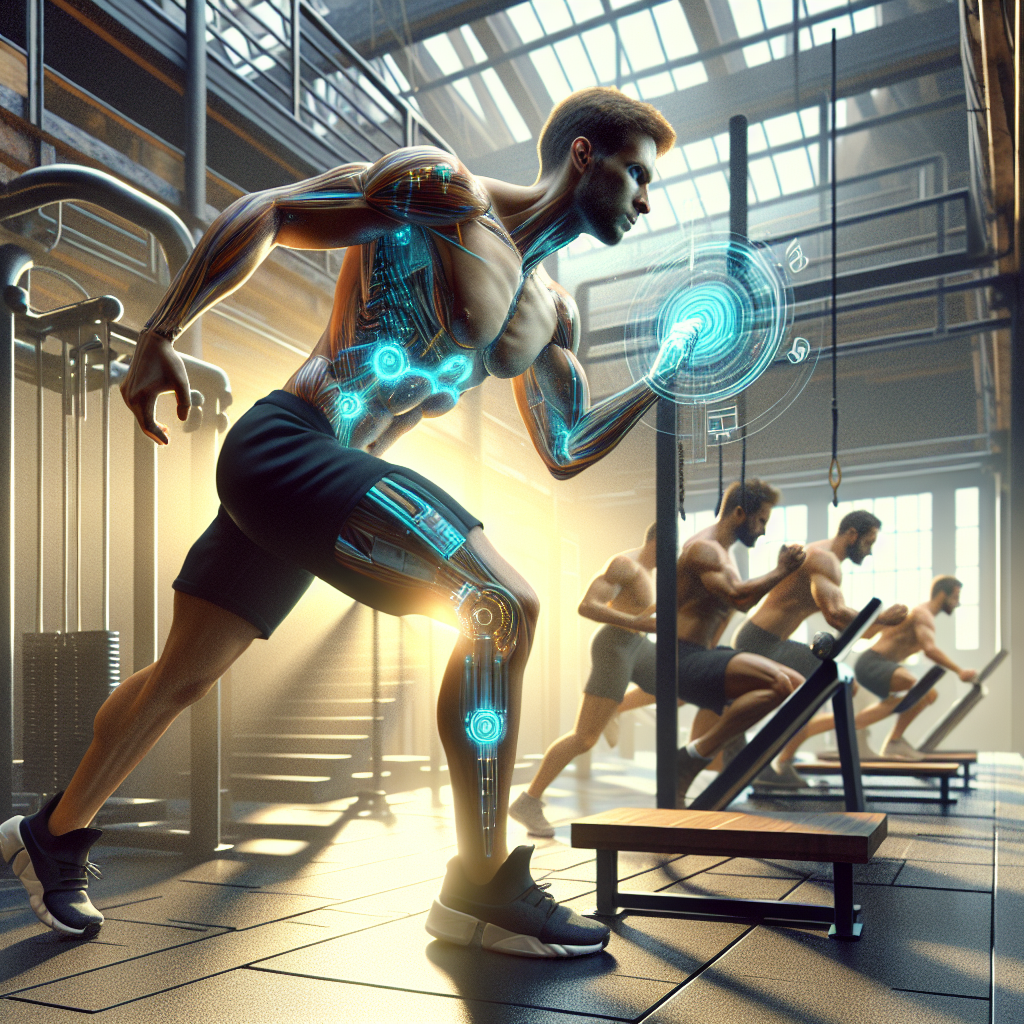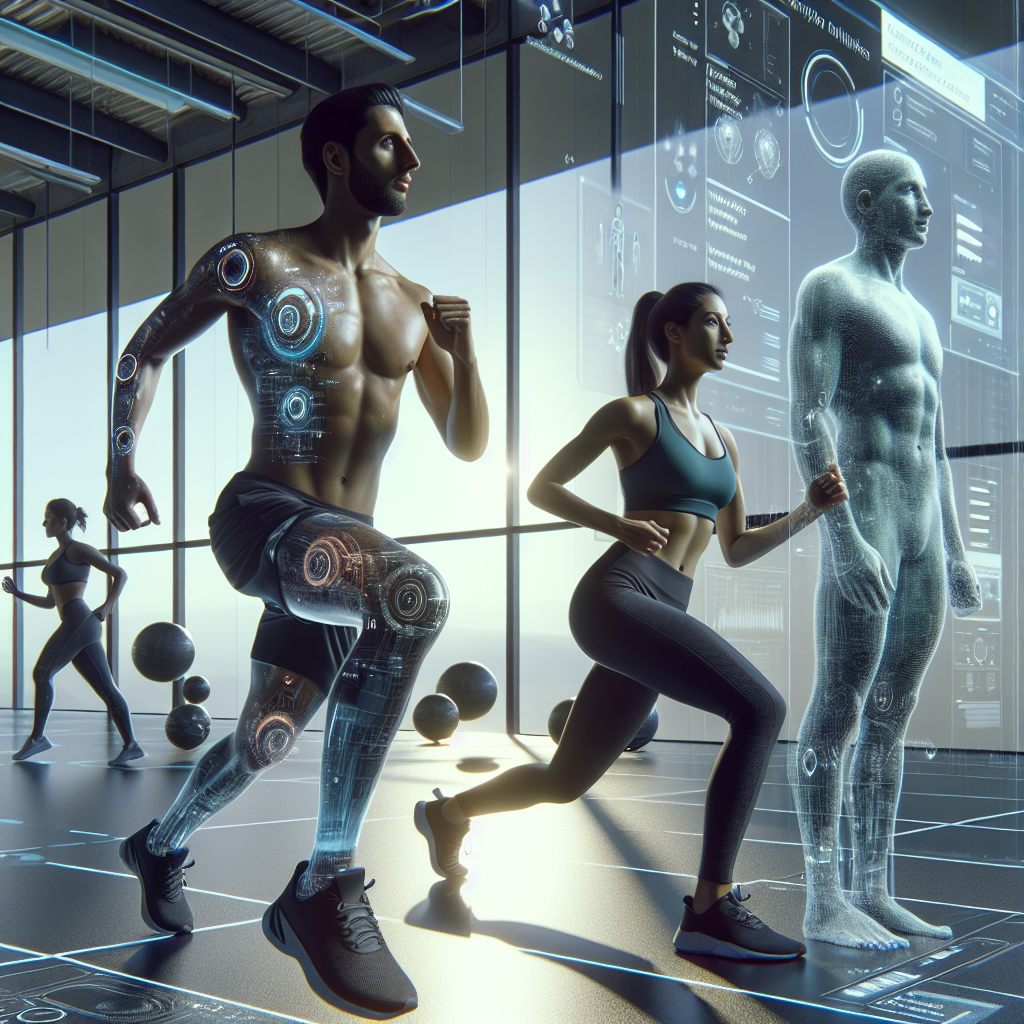Smart fitness trackers have revolutionized the way individuals monitor and manage their health, offering a personalized approach to fitness and wellness. By leveraging advanced sensors and connectivity features, these devices provide real-time data on physical activity, heart rate, sleep patterns, and more. This innovation not only empowers users to take control of their health but also facilitates a more tailored healthcare experience by syncing with apps and platforms that analyze the collected data. As we delve deeper into the role of these devices, it becomes evident that smart fitness trackers are pivotal in advancing personalized health monitoring.
The Evolution of Fitness Trackers
Fitness tracking technology has come a long way since the early days of simple pedometers. Early devices were limited to counting steps and estimating calorie burn. However, the advent of smart technology has transformed these gadgets into sophisticated health companions.
From Pedometers to Smart Trackers
The journey from basic step counters to modern smart trackers has been driven by technological advancements in sensors, connectivity, and data analytics. Early devices served a singular purpose, but today’s trackers integrate various health metrics, providing a holistic view of one’s health.
Key Technological Advancements
- Sensors: Modern trackers employ accelerometers, gyroscopes, and optical sensors to capture detailed data.
- Connectivity: Bluetooth and Wi-Fi enable seamless data transfer to smartphones and cloud platforms.
- Data Analytics: Advanced algorithms analyze collected data, offering meaningful insights and recommendations.
A Growing Market
The demand for smart fitness trackers has surged, reflecting a growing consumer interest in personal health management. According to a report by Statista, the global fitness tracker market size was valued at approximately USD 36 billion in 2020, with projections to reach USD 114 billion by 2028.
Market Trends
- Increased Awareness: Consumers are more health-conscious, seeking tools to monitor their wellness.
- Wearable Technology: Smartwatches and fitness bands have become fashion statements, blending functionality with style.
- Integration with Healthcare: Partnerships with healthcare providers enhance the utility and accuracy of health data.
The Core Functions of Smart Fitness Trackers
Smart fitness trackers offer a multitude of features that cater to various aspects of health and fitness. These core functions are essential for personalized health monitoring, providing users with a comprehensive understanding of their physical wellbeing.
Activity Tracking
One of the primary functions of fitness trackers is to monitor physical activity. Devices track steps, distance, calories burned, and active minutes, offering users insights into their daily activity levels.
Benefits of Activity Tracking
- Motivation: Setting and achieving daily step goals encourages a more active lifestyle.
- Progress Monitoring: Users can track improvements over time, adjusting goals as needed.
- Behavioral Insights: Data reveals patterns in activity, helping users identify areas for improvement.
Heart Rate Monitoring
Heart rate sensors provide real-time data on heart rate variability, resting heart rate, and more. This feature is crucial for understanding cardiovascular health and optimizing workouts.
Heart Rate Benefits
- Exercise Optimization: Heart rate zones help tailor workouts for fat burning, endurance, or performance.
- Health Monitoring: Abnormal heart rates can indicate underlying health issues, prompting further investigation.
- Stress Management: Monitoring fluctuations in heart rate can help manage stress and improve mental health.
Sleep Analysis
Quality sleep is integral to overall health, and smart fitness trackers provide detailed sleep analysis. They track sleep duration, stages (light, deep, REM), and disturbances.
Advantages of Sleep Tracking
- Improved Sleep Quality: Insights help users make lifestyle changes to enhance sleep.
- Understanding Sleep Patterns: Identifying patterns aids in establishing healthy sleep routines.
- Health Correlations: Poor sleep can be linked to other health issues, providing a complete health picture.
Caloric and Nutritional Monitoring
Some advanced trackers offer features to log food intake and monitor calories consumed versus calories burned. This feature supports weight management and nutritional balance.
Caloric Monitoring Benefits
- Weight Management: Helps in setting realistic weight loss or maintenance goals.
- Nutritional Awareness: Encourages healthier eating habits through mindful tracking.
- Integration with Diet Plans: Syncs with diet apps for a comprehensive approach to nutrition.
Personalization in Health Monitoring
Smart fitness trackers excel in offering personalized health insights, tailoring recommendations to individual needs and preferences. This personalization is achieved through data analysis, machine learning, and user input.
Data-Driven Personalization
By analyzing vast amounts of data, fitness trackers provide personalized recommendations for workouts, nutrition, and lifestyle adjustments. Machine learning algorithms continuously refine these recommendations based on user behavior.
Personalization Strategies
- Customized Goals: Trackers set personalized goals based on user data, ensuring they are both challenging and attainable.
- Adaptive Feedback: Real-time feedback adapts to user progress, keeping motivation high.
- Behavioral Insights: Analyzing patterns helps identify behaviors that contribute to or detract from health goals.
Integration with Health Apps
Fitness trackers often sync with health and fitness apps, providing a comprehensive view of one’s health. This integration enhances personalization by combining data from multiple sources.
Benefits of App Integration
- Comprehensive Health View: Users can see activity, nutrition, and health metrics in one place.
- Enhanced Data Analysis: Apps offer advanced analytics, providing deeper insights into health data.
- Social and Community Features: Integration with social platforms fosters community support and motivation.
Impact on Healthcare Providers
As smart fitness trackers become more prevalent, healthcare providers are leveraging this data to enhance patient care. Wearable data offers a window into patient lifestyles, aiding in diagnosis and treatment.
Healthcare Integration Advantages
- Proactive Care: Continuous monitoring allows for early detection of health issues.
- Patient Engagement: Patients become active participants in their health management.
- Data-Driven Insights: Wearable data provides objective, real-time health insights.
Challenges and Limitations
Despite the numerous benefits, smart fitness trackers face several challenges and limitations that impact their effectiveness in personalized health monitoring.
Accuracy Concerns
Accuracy remains a significant concern for fitness tracker users. Discrepancies in step count, heart rate data, and caloric expenditure can affect user trust and motivation.
Factors Affecting Accuracy
- Sensor Limitations: Inaccuracies can stem from sensor placement and calibration issues.
- User Variability: Differences in user behavior and physiology can impact data accuracy.
- Environmental Factors: External conditions, like temperature and humidity, can affect readings.
Privacy and Security
With the collection of sensitive health data comes the responsibility to protect user privacy. Security breaches and unauthorized data access pose significant risks.
Privacy Concerns
- Data Encryption: Ensuring data is encrypted both in transit and at rest is crucial.
- Informed Consent: Users must be informed about what data is collected and how it is used.
- Third-Party Access: Oversight of third-party app and service access to user data is necessary.
Dependence on Technology
While technology enhances health monitoring, there is a risk of over-reliance. Users may become dependent on devices for motivation and feedback.
Addressing Over-Reliance
- Balanced Approach: Encourage a balance between digital monitoring and traditional health habits.
- Education: Educate users on interpreting data and making informed health decisions.
- Device-Free Time: Promote periods of disconnection to avoid digital burnout.
The Future of Smart Fitness Trackers
The future of smart fitness trackers is promising, with advancements in technology paving the way for more sophisticated and integrated systems. These devices will continue to play a crucial role in personalized health monitoring.
Emerging Technologies
Future developments in wearable technology will focus on improving accuracy, expanding functionality, and enhancing user experience.
Innovative Features
- AI and Machine Learning: Enhanced algorithms for more accurate data analysis and personalized recommendations.
- Biometric Sensors: New sensors to monitor additional health metrics, such as hydration and glucose levels.
- Augmented Reality: AR applications for immersive fitness experiences and real-time coaching.
Integration with Healthcare Systems
As healthcare systems evolve, the integration of wearable data into electronic health records (EHR) will become more prevalent, allowing for comprehensive patient profiles.
Healthcare System Integration Benefits
- Enhanced Patient Records: Combining wearable data with EHRs for a complete health overview.
- Remote Monitoring: Continuous monitoring facilitates remote patient care and telemedicine.
- Personalized Treatment Plans: Data-driven insights inform tailored treatment and wellness plans.
Expanding Market Opportunities
The smart fitness tracker market will continue to expand, driven by innovation and consumer demand. New opportunities will emerge as technology advances.
Market Expansion Areas
- New Demographics: Targeting previously untapped markets, such as older adults and children.
- Corporate Wellness Programs: Increasing adoption in workplace health initiatives to improve employee well-being.
- Global Reach: Expanding access to wearable technology in developing regions.
Conclusion
Smart fitness trackers are transformative tools in personalized health monitoring, offering insights and encouragement for healthier lifestyles. As technology advances, these devices will become even more integral to the healthcare landscape, providing unprecedented opportunities for personal and systemic health improvements. By addressing current challenges and embracing future innovations, smart fitness trackers will continue to empower individuals to take control of their health and wellbeing.
Join the Fitness Revolution with PurelyFit Today!
Experience the Future of Fitness: AI-Powered Workouts & Personalized Nutrition.
Unlock Your Potential with Workouts Tailored Just for You.
Discover Over 600,000 Recipes for Every Lifestyle.
Monitor Your Progress in Real-Time and Adapt as You Grow.
Take the First Step Towards Your Fitness Goals—No Gym Required!












